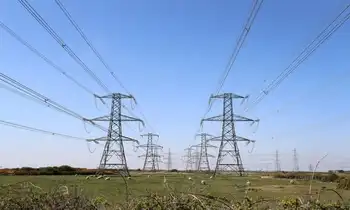Islamist hoped to strike nuclear plants
Assad Sarwar, 27, a British Muslim with ties to Islamic radicals in Pakistan, also wanted to destroy the main exchange for Britain's Internet service providers and target an airport control tower, prosecutor Peter Wright said.
Wright said Sarwar decided not to join the seven other defendants in carrying out their planned suicide mission to blow up at least seven flights to the United States and Canada.
"On the evidence you may conclude he had other terrestrial targets in mind as well," he said.
All eight defendants have denied the charges.
Sarwar compiled detailed information on London's Canary Wharf finance district, a Belgium-Britain gas pipeline, Britain's electricity grid and oil refineries for possible attacks, Wright said.
He also stored information about an air traffic control tower at London's Heathrow airport on a computer memory stick.
"The horizon of Sarwar's terrorist ambition, we say, was limitless," Wright said.
In a diary, Sarwar made references to the Fawley oil refinery, in Hampshire in southern England, the Coryton oil refinery in Essex in southeast England, and Kingsbury oil terminal in central England.
Sarwar visited Pakistan between June 13 and July 8, 2006 — likely to confer with Islamist leaders over the planned jetliner attacks, Wright said.
Related News

Renewables Surpass Coal in India's Energy Capacity Shift
INDIA - In a landmark shift for the world's second-most populous nation, coal has finally been dethroned as the king of India's energy supply. The first quarter of 2024 saw a historic surge in renewable energy capacity, pushing its share of power generation past 71.5%. This remarkable feat marks a turning point in India's journey towards a cleaner and more sustainable energy future.
For decades, coal has been the backbone of India's power sector, fueling rapid economic growth but also leading to concerning levels of air pollution. However, a confluence of factors has driven this dramatic shift. Firstly, the cost…





